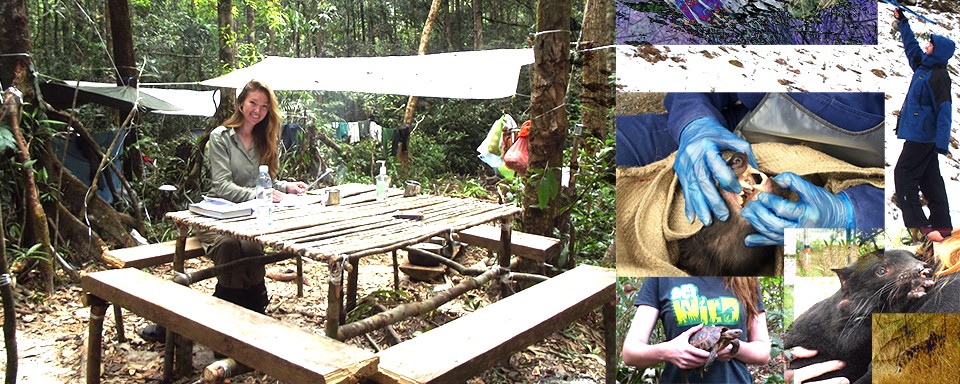Victoria’s Threatened Species: Fighting Extinction
 Dr Marissa Parrott
Dr Marissa Parrott
Reproductive Biologist
Wildlife Conservation & Science, Zoos Victoria
Zoos Victoria is committed to Fighting Extinction, working locally and globally to deliver tangible conservation outcomes. Their goal is to be a world leading zoo-based conservation organisation, the Australian authority on captive holding and management of native threatened species, and a major facilitator of wildlife knowledge for conservation action. Zoos Victoria has a commitment to ensure that no Victorian terrestrial vertebrate species goes extinct. Through in depth analyses, they have identified 20 species that are on the brink of extinction due to threats including habitat loss, feral animals, landscape fragmentation, disease and climate change; species they are committed to protect and recover in the wild.
Maintaining an animal’s natural behaviours is critically important in captive breeding programs, particularly when breeding threatened species for reintroduction. Allowing animals to choose their own mates not only preserves behaviours that are essential for successful release and re-establishment of wild populations, but can increase the number and genetic quality of young, the genetic viability of a population and improve the success and survivorship of young. It can also decrease stress and aggression in the animals and reduce the likelihood of fighting, injuries and deaths in captivity. Zoos Victoria’s research has shown that female mate choice can significantly increase breeding success in a variety of marsupials and may be an important tool in the conservation a variety of endangered taxa. Maintaining natural social structures, activity patterns and understanding of natural predators is also crucial in successful reintroduction of species.
Join reproductive biologist Marissa Parrott, who will describe how her team are fighting extinction for these 20 threatened species and how research into mate choice, maintaining natural behaviours and predator avoidance training is used to increase conservation outcomes for Zoos Victoria’s endangered species programs including the Mountain Pygmy-possum, Eastern Barred Bandicoot, Helmeted Honeyeater and Tasmanian Devil.
About the Speaker
Dr Marissa Parrott has always had a passion for wildlife. Her PhD research focused on mate choice, genetics and breeding success in a carnivorous marsupial, the Agile Antechinus; the first published research into mate choice in a marsupial. She then built on her findings though post-doctoral research with Prof. Lynne Selwood, examining novel techniques to maximise breeding success in captive breeding colonies of marsupials across Australia; research that continues today. Dr Parrott has more than fifteen years’ experience in wildlife field work, five years in molecular genetics laboratories, and ten years in research and zoo captive breeding programs. She has also been involved in a variety of wildlife and conservation programs across Australia, Asia, Africa and the Americas.
In 2007, she joined Zoos Victoria to work on the breeding program for the critically endangered Mountain Pygmy-possum, before joining the department of Wildlife Conservation and Science in 2008. As the Reproductive Biologist for Zoos Victoria, she works across Healesville Sanctuary, Werribee Open Range Zoo, Melbourne Zoo and a variety of field locations to improve sustainable zoo populations, reintroduction techniques and captive breeding success, and lead reproductive and behavioural research projects. She has also been involved with Zoos Victoria’s international conservation projects, including key projects with Fauna and Flora International and the Royal University of Phnom Penh, Cambodia. She is involved in strategic planning, reintroduction and recovery for a number of endangered native marsupial, rodent and frog species to aid Zoos Victoria’s commitment that no Victorian terrestrial vertebrate species will go extinct.








